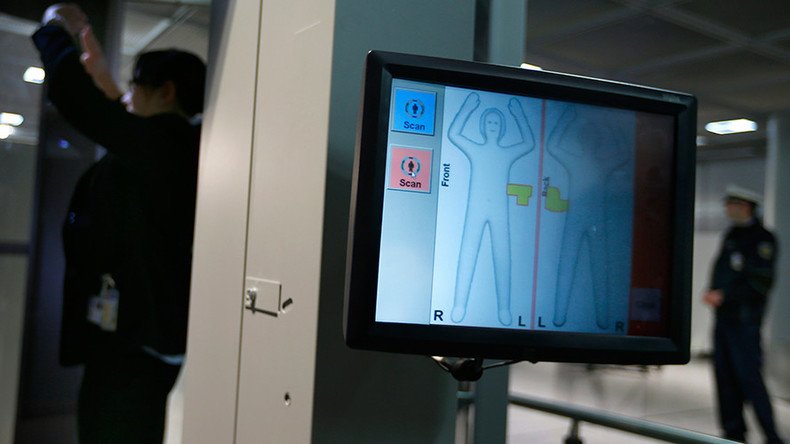TSA body scanners scare people into less-safe cars – lawsuit

TSA body scanners make people less safe, according to a new lawsuit, but the two non-profit groups behind the claim aren’t concerned with fliers as much as they are the people the TSA scares away from safer skies onto riskier highways.
The Competitive Enterprise Institute (CEI), a libertarian think-tank in Washington, DC and the Rutherford Institute, an organization that has been described as “a more conservative American Civil Liberties Union,” have joined forces to fight the Transportation Security Administration – the bane of many travelers’ existences.
‘Going native’: TSA whistleblower claims orders were to profile Somali imamshttps://t.co/04nIPTlIf5pic.twitter.com/SpO8pcj62L
— RT America (@RT_America) April 29, 2016
In a statement on CEI’s website, Vice President for Strategy Iain Murray said the TSA’s use of body scanners forced some nervous travelers to drive instead. According to Murray, the problem with that is “car travel is much riskier than air travel, the net result could be an increase in overall travel fatalities.”
“TSA has ignored the trade-offs its security theater imposes on the public,” Murray said, adding, “the TSA arbitrarily downplayed the intrusiveness of its scanners, which are replacing walk-through metal detectors at many airports. As a result, the agency ignored the fact that the scanners will cause many would-be air travelers to drive instead.”
While the lawsuit is not calling for all 789 full-body scanners to be removed from their 156 airports, that is their end goal.
“Yes, we do want these machines ultimately out,” Marc Scribner, a research fellow at the CEI, told The Washington Post. “We don’t believe they are cost effective. We could put these security funds to much better use.”
Scribner cited a 2007 study from Cornell suggesting the “substitution of driving for flying by travelers seeking to avoid security inconvenience likely led to over 100 road fatalities.”
The study was released one year prior to the TSA’s unveiling of the body scanners. In a post on the blog site CapX, Murray cited a Guardian article claiming “Nearly 1,600 people died the year after 9/11 because they chose to drive instead of flying.”
This is neither CEI nor the Rutherford Institute’s first time battling the TSA. CEI has been fighting the use of body scanners since 2008, while the Rutherford Institute has been involved with lawsuits against the TSA since 2010.
Since 2013, the TSA stopped using full body scanners that reveal a full image of the traveler, replacing them with "millimeter wave body scanners,” which use images of stick figures instead of specific bodies.












